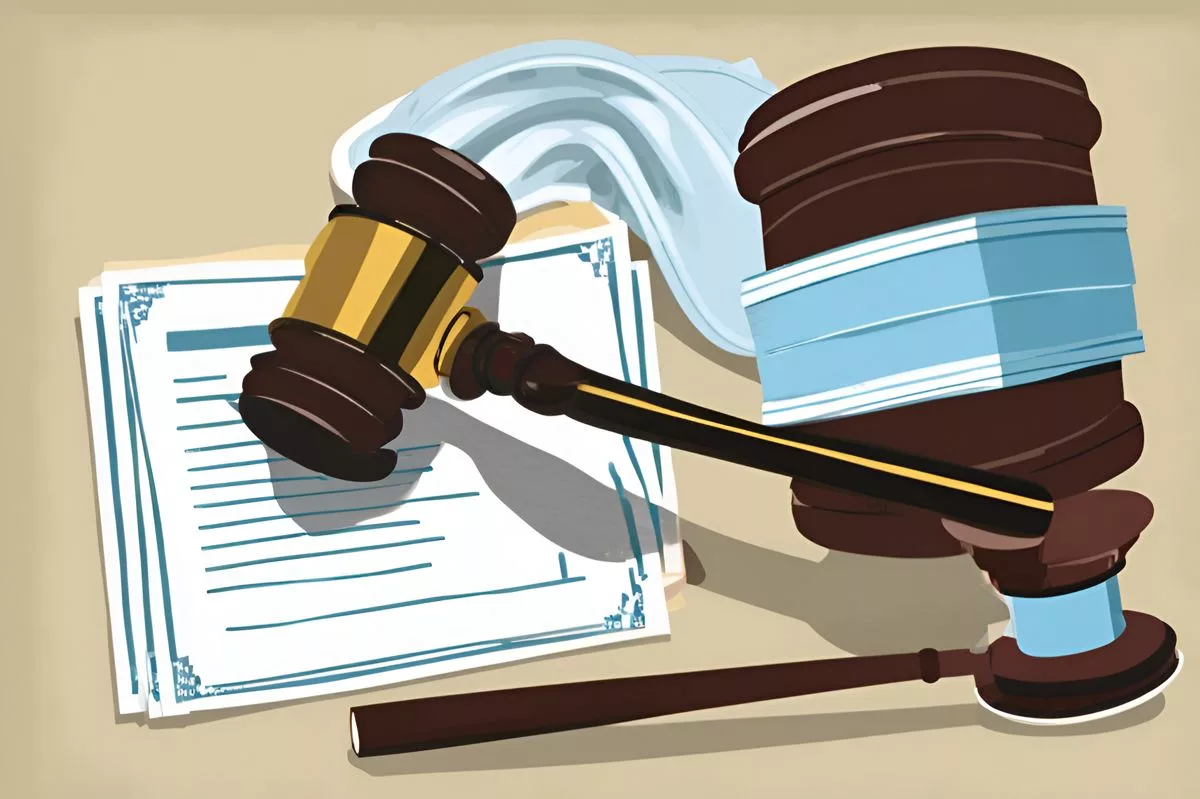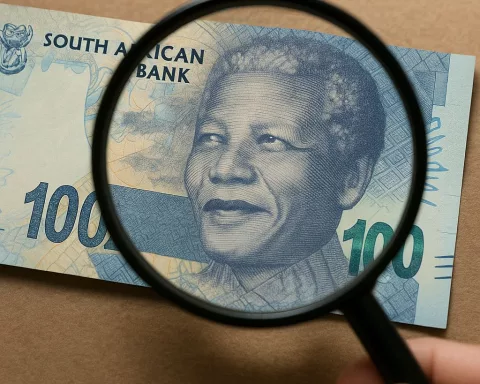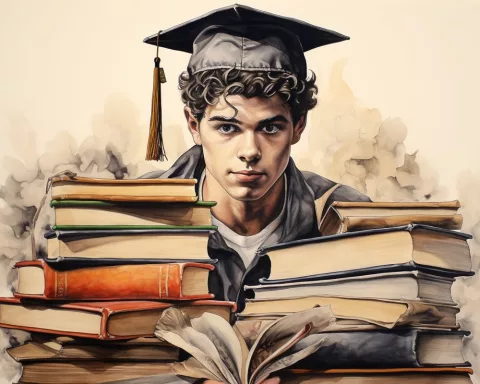The trial of alleged assassins Yanga Nyalara and Wandile Tofile at the Goodwood Prison courtroom has been complicated by the Covid-19 pandemic. A witness was proposed to testify behind a surgical mask, with testimonies being relayed through CCTV to ensure their safety. However, the defense team contested this proposal, leading to a legal power struggle. The trial involves charges of murder, attempted murder, and weapon-related offenses stemming from a series of mass shootings in Cape Town.
Can a witness wear a surgical mask in court during the Covid-19 pandemic?
Yes, a witness can wear a surgical mask in court during the Covid-19 pandemic. In the trial of alleged assassins Yanga Nyalara and Wandile Tofile at the Goodwood Prison courtroom, a witness was proposed to testify behind a surgical mask, with testimonies being relayed through CCTV to ensure the safety and mental stability of the witness. However, the defense team contested this proposal, asserting it would obstruct the evaluation of the witness’s reliability, leading to a legal power struggle.
The Unsettling Interplay of a Pandemic and a Trial
The Goodwood Prison courtroom is currently the stage for a trial that has intermingled the grave threats of the Covid-19 pandemic with a horrifying criminal case. The accused, Yanga Nyalara and Wandile Tofile, allegedly noted assassins, are facing judgment in a trial that has been further complicated by the ongoing global health crisis. This Tuesday, a new debate revolved around the suggestion of a surgical mask being worn by a witness.
Nyalara, also known to some as ‘Bara,’ and his co-accused Tofile, are under indictment for a slew of grave offenses, including twelve instances of murder, six counts of attempted murder, and numerous weapon-related charges. These charges stem from a series of mass shootings that occurred on May 15, 2021. The duo’s repudiation of the charges and a slew of inexplicable dismissals of other charges have amplified the stakes of the trial.
The courtroom was charged with tension when the State proposed that the initial witness should testify behind a surgical mask, with testimonies being relayed through closed-circuit television (CCTV). This move was proposed to ensure the safety and mental stability of the witness. The surgical mask, a symbol of protection against the Covid-19 virus, has been repurposed as a tool for preserving the witness’s anonymity. However, the defense team contested this seemingly practical proposal, asserting it would obstruct the evaluation of the witness’s reliability.
The High Stakes of Anonymity
The notion of a faceless testimony is rooted in a grim reality. The principal detective on the case, Lieutenant-Colonel Vincent Galant, disclosed that two witnesses have already been murdered before the commencement of the trial, and the surviving witness has endured two attacks. Despite these threats, the brave witness has chosen to break away from the safety of the witness protection program, making the surgical mask and CCTV testimony imperative for his protection.
However, the defense lawyers contend that Bara, and consequently Tofile, hold the entitlement to analyze the facial expressions and body language of the individual testifying against them. The defense’s objection has sparked a legal power struggle, emphasizing the fact that in the courtroom, the slightest detail can have profound influences.
The legal tug-of-war is set against the backdrop of the newly constructed prison court, which is acting as a High Court for the first time. This adds another level of complexity to this debate, as the final decision on this legal puzzle could potentially shape the course for future trials.
The Backdrop of Violence and Extortion
The trial paints a grim picture of a chain of mass shootings in the communities of Khayelitsha, Gugulethu, and Nyanga. These horrific incidents have incited fear due to their seemingly random nature. The pivotal incident in this case was the killing of Sikhumbile Nkonki, an associate of Nyalara, outside a shop under extortion. The State alleges that the retaliation for Nkonki’s death was the trigger for the gruesome events of May 15.
The severity of these incidents heightened when 10 to 15 armed individuals unleashed a reign of terror, firing at anyone in the vicinity of the business. This event led to the deaths of twelve people and the injury of six others, who are now grappling with lasting health problems.
The surge in these violent incidents can be linked to the rise of extortion in Cape Town, which initially began within nightclub security disputes. This threat has since extended to construction sites, where contractors are forced to share profits to maintain a consistent work schedule.
Despite the apprehension of Nyalara and Tofile, the shootings continue, with eight fatalities recorded in Khayelitsha in April. The battle over the use of a surgical mask for the witness continues, leading the case to be postponed until Wednesday. The defense will then present its concluding argument against the mask, adding another layer to this multifaceted and momentous trial.
What charges are Yanga Nyalara and Wandile Tofile facing?
Yanga Nyalara and Wandile Tofile are facing charges of murder, attempted murder, and weapon-related offenses stemming from a series of mass shootings in Cape Town.
Why was a witness proposed to testify behind a surgical mask in the trial?
A witness was proposed to testify behind a surgical mask in the trial to ensure their safety and mental stability. This move was also meant to preserve the witness’s anonymity, as two witnesses have already been murdered before the trial, and the surviving witness has endured two attacks.
Can the defense team object to a witness wearing a surgical mask in court?
Yes, the defense team can object to a witness wearing a surgical mask in court. In the trial of Yanga Nyalara and Wandile Tofile, the defense team contested the proposal of a witness wearing a surgical mask, asserting it would obstruct the evaluation of the witness’s reliability.
What is the concern of the defense team about a witness testifying behind a surgical mask?
The defense team is concerned that a witness testifying behind a surgical mask would obstruct the evaluation of the witness’s reliability, as they hold the entitlement to analyze the facial expressions and body language of the individual testifying against them.
What was the trigger for the series of mass shootings in Cape Town?
The killing of Sikhumbile Nkonki, an associate of Yanga Nyalara, outside a shop under extortion, was the trigger for the series of mass shootings in Cape Town.
What is the backdrop of violence and extortion in Cape Town?
The surge in violent incidents in Cape Town can be linked to the rise of extortion, which initially began within nightclub security disputes but has since extended to construction sites, where contractors are forced to share profits to maintain a consistent work schedule.












